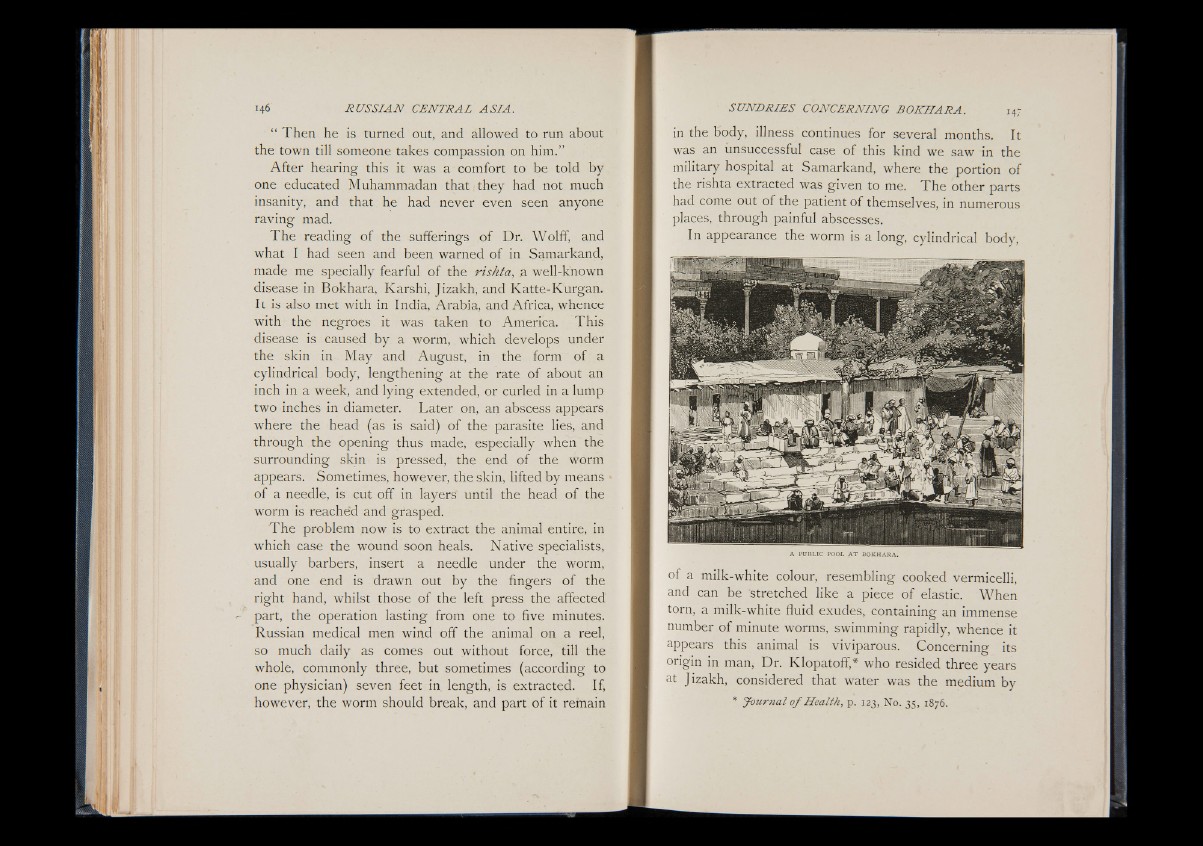
“ Then he is turned out, and allowed to run about
the town till someone takes compassion on him.”
After hearing this it was a comfort to be told by
one educated Muhammadan that they had not much
insanity, and that he had never even seen anyone
raving mad.
The reading of the sufferings of Dr. Wolff, and
what I had seen and been warned of in Samarkand,
made me specially fearful of the riskta, a well-known
disease in Bokhara, Karshi, Jizakh, and Katte-Kurgan.
It is also met with in India, Arabia, and Africa, whence
with the negroes it was taken to America. This
disease is caused by a worm, which develops under
the skin in May and August, in the form of a
cylindrical body, lengthening at the rate of about an
inch in a week, and lying extended, or curled in a lump
two inches in diameter. Later on, an abscess appears
where the head (as is said) of the parasite lies, and
through the opening thus made, especially when the
surrounding skin is pressed, the end of the worm
appears. Sometimes, however, the skin, lifted by means
of a needle, is cut off in layers until the head of the
worm is reached and grasped.
The problem now is to extract the animal entire, in
which case the wound soon heals. Native specialists,
usually barbers, insert a needle under the worm,
and one end is drawn out by the fingers of the
right hand, whilst those of the left press the affected
part, the operation lasting from one to five minutes.
Russian medical men wind off the animal on a reel,
so much daily as comes out without force, till the
whole, commonly three, but sometimes (according to
one physician) seven feet in length, is extracted. I f
however, the worm should break, and part of it remain
in the body, illness continues for several months. It
was an unsuccessful case of this kind we saw in the
military hospital at Samarkand, where the portion of
the rishta extracted was given to me. The other parts
had come out of the patient of themselves, in numerous
places, through painful abscesses.
In appearance the worm is a long, cylindrical body,
A PUBLIC POOL A T BOKHARA.
of a milk-white colour, resembling cooked vermicelli,
and can be 'stretched like a piece o f elastic. When
torn, a milk-white fluid exudes, containing an immense
number of minute worms, swimming rapidly, whence it
appears this animal is viviparous. Concerning its
origin in man, Dr. Klopatoffi* who resided three years
at Jizakh, considered that water was the medium by
* Journal o f Health, p. 123, No. 35, 1876.